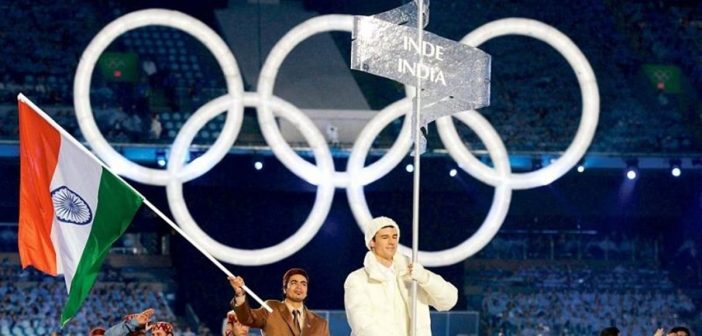In a historic move, India has officially entered the race to host the 2036 Olympic Games, submitting a formal letter of intent to the International Olympic Committee (IOC). This bid, championed by Prime Minister Narendra Modi, marks India’s first Olympic bid since gaining independence, symbolizing its growing influence on the global stage and its commitment to becoming a central hub for international events.
Prime Minister Modi, speaking at the IOC’s 141st session in Mumbai, emphasized India’s readiness to “leave no stone unturned” in making the 2036 Olympics a monumental success. He positioned the event as an opportunity for India to showcase its evolving infrastructure, vibrant culture, and the resilience of its people. Acknowledging the potential of the Olympics to serve as a powerful medium for “soft power” enhancement, India’s aspirations align closely with the goal of using the Olympics to promote global visibility, similar to how other nations have boosted their image through successful Olympic hosting.
India’s recent advancements in infrastructure and urban development further strengthen its case. The proposed venue for the 2036 Olympics is Ahmedabad, Gujarat, where Sardar Vallabhbhai Patel Sports Enclave is being developed as an Olympic-ready complex. This ambitious project includes a network of state-of-the-art stadiums, athletic centers, and supporting facilities, ready to meet the rigorous demands of the IOC’s modern standards of flexibility, sustainability, and cost-effectiveness. This enclave reflects India’s ability to execute world-class sporting facilities while managing costs—a priority in the IOC’s “new norm” selection process for host cities, which focuses on reducing excessive spending and promoting environmental sustainability.
India’s recent experience hosting international events, including the G20 Summit and the Cricket World Cup, highlights its capability to manage large-scale gatherings with meticulous planning and security protocols. These events have enhanced the nation’s event-hosting infrastructure, bringing about improved transportation networks, urban amenities, and security systems, all of which are critical for hosting an Olympics.
Additionally, India’s growing success in international sports, with recent strong performances in the Paralympics and other global competitions, has fueled public enthusiasm and national pride. Hosting the Olympics would not only inspire a new generation of athletes but also underline India’s ambition to support and celebrate sporting excellence on home ground.
By targeting the 2036 Olympics, India aims to establish itself as a beacon of athletic prowess and cultural unity, representing the aspirations of over 1.4 billion citizens. This bold move, if realized, would bring the Olympics to South Asia for the first time, underscoring India’s evolving role on the world stage and its readiness to create a legacy for generations to come.






